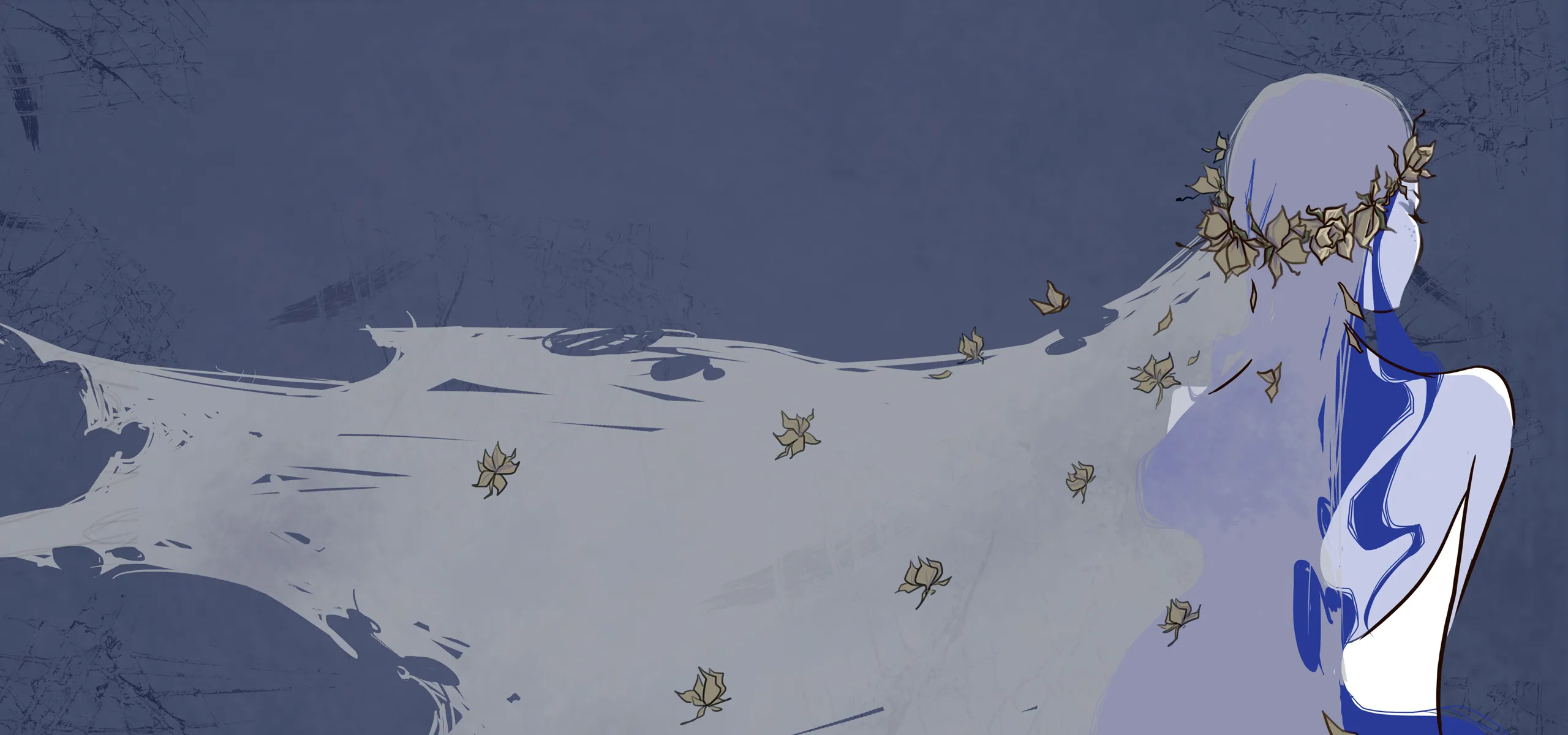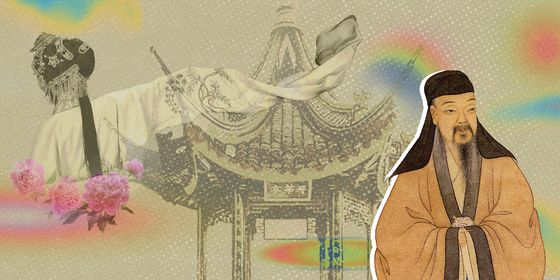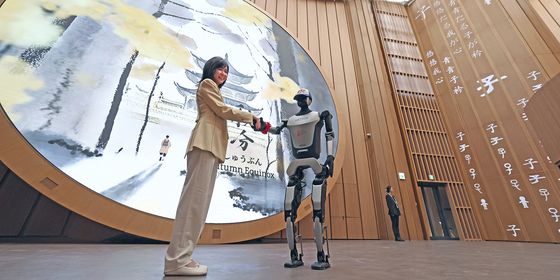In conservative regions of China, death is no obstacle to marriage
Being dead renders one immune to most forms of social pressure, but it would seem the Chinese desire to see single people wed transcends even the mortal coil.
Such is the foundation of minghun (冥婚), or “ghost marriages,” which involve at least one dead person, possibly two. Today they are entirely illegal, but that hasn’t squashed the practice, which in some rural parts of the country can even result in grave-robbing and clandestine ceremonies organized by families who fear their single dead sons will lead a lonely afterlife.
Although the origins of ghost marriage are shrouded in mystery, the Records of the Three Kingdoms (《三国志》), which was published in the third century, tells the tale of Cao Chong (曹冲), son of the infamous warmonger Cao Cao, who in 208 died at the tender age of 13. Having died so young, his relatives scrambled to find him a wife, settling on a deceased daughter in the Zhen clan. They were buried together (along with a raft of titles for the boy, including Chief Cavalry Commandant) in the hope that even if they didn’t know each other in life, they would get along in death.
One paper on the subject, published in 2008, put the earliest date of a ghost wedding in 1700 BCE and the peak of the practice in the Tang dynasty (618 - 907). Another report from Henan Normal University traces back the first mention of minghun to a king of the Shang dynasty (1600 BCE - 1046 BCE).
Chinese history has long been peppered with beliefs relating to ancestor worship, infused with the idea that the dead continue to live on in the netherworld. It is often up to people left in this world to ensure the needs of their dead relatives are met, which can range from tacky material possessions like iPhones to a partner to spend their death with.
One theory about the origins of the practice comes from Dutch sinologist and demonologist Jan Jakob Maria de Groot, who in 1892 wrote that it was a natural evolution from earlier practices of sacrificing the still-living wives of dead husbands so they could be together in the afterlife. He said that by allowing women to live out their natural lives, “little sophistry was needed to convince the people that, by thus modifying the human immolations, the interests of the dead would be but little affected.”
De Groot was referring to a brutal practice known as xunzang (殉葬), or burial sacrifice, a practice which dates back as far as the Chinese dynasties themselves. Visitors to Anyang in Henan province can still find sites believed to be around 3,500 years old, containing the skeletons of slaves beheaded to serve Shang dynasty monarchs in the afterlife.
But given the frequent occurrences of sacrifices for the dead throughout Chinese history, it’s perhaps unsurprising that a filial belief system resting upon the idea that the dead still have needs would embrace the concept of ghost marriage.
The practice of ghost marriage has varied from place to place throughout Chinese history, and even in overseas Chinese communities. A 1979 Oxford University anthropology paper describes the traditions on the Chinese mainland as being somewhat different from those of Singapore, Hong Kong and Taiwan. On the mainland, ghost marriages basically involved relatives burying the bodies together. In other locations, however, the ghost of the dead child was believed to have manifested in some way, effectively badgering the relatives into finding a match.
Specifically in Taiwan, the gender emphasis was rather different than what is seen on Chinese mainland today. “There, it is always the dead girl who initiates the marriage, and she is always married to a living man. The man is free to marry again, or if he is already married, the ghost becomes his retrospective first wife,” the paper notes.
“In other areas, in all cases I have come across, both parties are dead, and the wedding can be initiated by either of them appearing in a dream to a parent or relative. The exception to this is when one party of an engaged couple has died and is then married by the survivor,” anthropologist Diana Martin wrote.
She also described a ceremony told to her by a middle-aged man, Hong Kong native Mr. Ho: “The boy and the girl at the wedding were both represented by wooden ancestral tablets inscribed with their names. The boy’s tablet was carried into the main room first, then the girl’s. Both were made to bow to the ancestral altar. The tablets were then put on the altar and worshiped on festival days along with all the other ancestors.” The paper mentions that there were no more dream appearances to the relatives after that, and the two families of the deceased then considered themselves related to one another.
Indeed, families play a central role in ghost marriages; De Groot noted as much over a hundred years ago. “Such posthumous marriages are peculiarly interesting as showing that the almost unlimited power of parents in choosing wives or husbands for their children does not cease to exist even when the latter have been removed to the Realms of Death, so that in fact children are there subject to the will of their parents,” he wrote.”They further prove how faint the line of demarcation between the living and the dead is in China, even if it exists at all.”
One can’t help but wonder what De Groot would make of some of the grisly modern stories about ghost brides. In 2007, two men were arrested after a case of human trafficking became something even worse. Shaanxi farmer Yang Dongyan was alleged to have purchased a living woman he intended to sell as a bride for an amount equivalent to about 1,600 USD. He then encountered a man familiar with the ghost-bride trade, who informed him that he could get a higher price for the woman’s corpse.
According to the Associated Press, Yang reportedly killed the woman in a ditch and put her body in a bag, then sold her to an undertaker for 2,077 USD. He later committed another murder, this time of a prostitute in Yan’an, and sold her corpse for a lesser amount because he believed she was less attractive. Worryingly, police in the area said they believed the killings were not isolated cases, and a number of media reports have mentioned stranglings and multiple murders of young women to meet the demand.
China’s gender imbalance has fueled demand for brides, both living and dead. In some conservative areas, it is believed that a deceased man who is unmarried cannot be buried in his clan’s tomb. This has meant a need for female corpses, and some truly bizarre tales.
In one case of presumably awkward posthumous polygamy in 2012, a family sold the body of their tragically deceased daughter for 35,000 RMB. That kind of money proved a tempting prize for a band of grave-robbers, who dug up the body and took it to another town to sell it for 30,000 RMB to appear in another ghost wedding.
In 2011, the Global Times reported on that the superstitious coal barons of Hengshan county in Shaanxi Province were driving demand for corpse brides. It cited Pang Shende, a ghost-wedding broker who helps choose auspicious dates for key occasions, and occasionally dabbles in affairs of the dead.
“On the black market, a female corpse can fetch 130,000 yuan now,” he told the newspaper, adding that, “a few years ago, it was only worth 200 yuan.”
Pe said that there were around 30 people like him involved in the trade, and that most of the time, the deals were sealed at the hospital, shortly after women had died.
Such drama provides ripe fodder for entertainment. The 2014 Singapore film A Fantastic Ghost Wedding, to provide just one example, has the typical hijinks one expects from Singaporean slapstick comedy, and on this occasion features a spirit-medium boy and families trying to organize a lavish ghost-wedding.
How prevalent the practice still is beyond the screen is anybody’s guess. Despite crackdowns by the Chinese government ever since the days of Mao Zedong, it has persevered in rural areas to this day. Fang Yangyang, a mentally impaired woman from rural Shandong province tortured to death by her in-laws in 2019, raised another outcry when her family apparently sold her remains into a ghost marriage.
More recently, Chinese media reported in November 2021 that the ashes of a livestreamer who’d committed a shocking on-camera suicide in October had been stolen by funeral home workers to sell in a ghost marriage, shedding light on a large network for human-remains traffickers embedded in hospitals and funeral homes in parts of the country. More than any ghosts of relatives unhappy to still be single in the afterlife, that ought to send a shiver down anyone’s spine.
"Dead When Wed” is a story from our issue, “Military.” It has been edited and updated to reflect new developments. To read the original version of the piece, become a subscriber and receive the full magazine. Alternatively, you can purchase the digital version from the iTunes Store.












